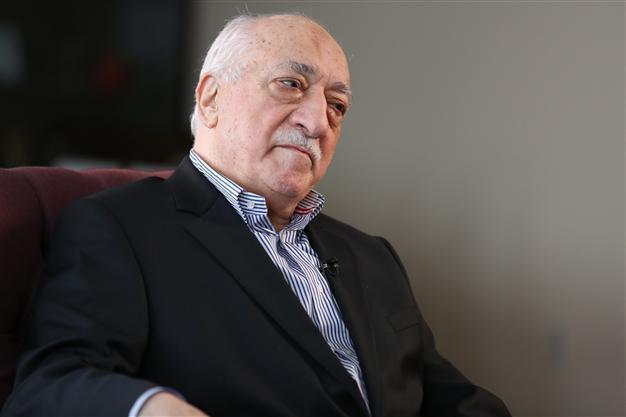Top court approves revoke of Gülen’s ‘special passport’
ANKARA

Fethullah Gülen was given the right to have a special passport, widely dubbed a 'green passport,' in 1990, as a retired mufti.
The top administrative court of Turkey has approved a March decision by the governor’s office in the eastern province of Erzurum, which revoked a special passport granted to U.S.-based Islamic scholar Fethullah Gülen more than two decades ago.The approval by the 10th Chamber of the Council of State was given to a local administrative court in Erzurum, which had earlier cancelled the governorate’s decision to revoke the passport, Anadolu Agency reported late on Dec. 28. If the local court insists on its previous decision, the case will be handled by the Plenary Session of Administrative Law Chambers of the Council of State, which will hold the final decision.
The leader of the Gülen movement was given the right to have a special passport, widely dubbed a “green passport,” in 1990, as a retired mufti. Although a special passport allows the bearer to travel visa-free to certain countries, the United States is not on the list, so Gülen’s residence in the U.S. will not be affected by the decision. Gülen has to apply to a Turkish consulate in the U.S. to renew his passport as a standard one.
The green passport is issued to high-ranking government officials and civil servants in recognition of their years of service to the Turkish government.
Following the Erzurum Governorate’s decision, Gülen’s lawyers had appealed to the local court in Erzurum for the4 cancellation of the governorate’s decision.
In its decision, the 10th Chamber of the Council of State maintained that the passport, issued to Gülen in 1990 and renewed in 2011, was granted on the basis of untrue statements by both the Directorate General for Religious Affairs (Diyanet) and Gülen himself concerning his role as a public servant. Muftis are employed by Diyanet.
“As a result, it is not unlawful to cancel the issuing of a special passport to the complainant,” the 10th Chamber said.
The top court’s decision comes amid heightened tensions between Gülen and the ruling Justice and Development Party (AKP) government, in power since 2002, and President Recep Tayyip Erdoğan.
The government and Erdoğan, elected to his current post in August and who was the prime minister at the time, have accused the Gülen movement of organizing a plot, through a graft probe that began on Dec. 17, 2013. Wiretappings, which include alleged voice recordings of Erdoğan and his family members, along with some Cabinet members and a number of businesspeople, were leaked online simultaneously with the probe last year.
Erdoğan also claims the Gülen movement is involved in espionage attempts.
















